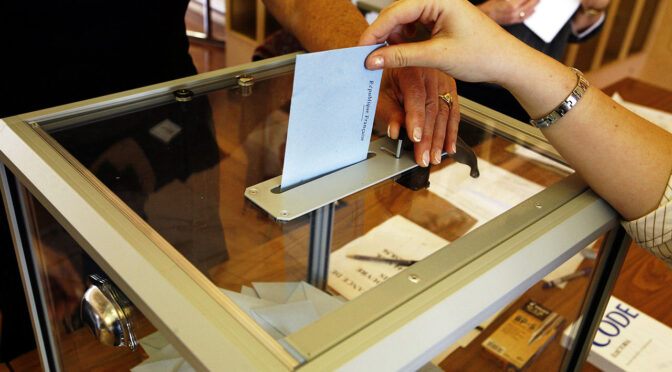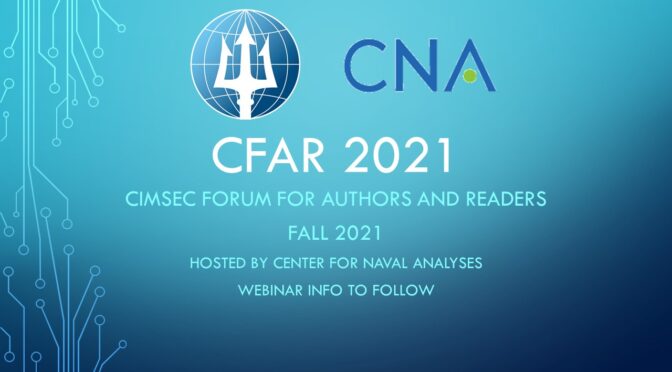By Dmitry Filipoff
While 2020 was a turbulent year for a multitude of reasons, thankfully it was a year where CIMSEC achieved new heights. Last year was our highest-trafficked year to date, with increasingly growing and more sustained interest from new readers.
Our success primarily comes from the excellent authors who wish to engage with CIMSEC to share their ideas and writing. To commemorate the beginning of the new year and to share our thanks with contributors, we have assembled CIMSEC’s top 10 most-read pieces of 2020.
Read on to see our biggest hits of last year, and may 2021 be another year of growing interest in international maritime security.
_____________________________________________________________________________________
1.”Evolution of the Fleet: A Closer Look at the Chinese Fishing Vessels off the Galapagos,” by Dr. Tabitha Mallory and Dr. Ian Ralby
“A flurry of news stories in late July 2020 reported on the ‘discovery’ of a ‘massive’ fleet of Chinese fishing vessels in the waters off the Galapagos, which fluctuated to over 350 before the fleet finally left by mid-October to fish farther south. Yet the presence of the Chinese distant water fishing fleet in the area has been expanding for several years…Using data and insight from Windward, a predictive maritime intelligence platform, our analysis examines how this fishing phenomenon has evolved over time and who is behind this increasingly intensive fishing effort.”
2. “Lifting the Veil on the Lightly Manned Surface Combatant,” by Ben DiDonato
“As the U.S. Navy moves into the unmanned age and implements Distributed Maritime Operations (DMO), there is a need for small, lightly manned warships to streamline that transition and fill roles which require a human crew. Congress has expressed concerns about unmanned vessels on a number of fronts and highlighted the need for a class of ships to bridge the gap. The Naval Postgraduate School’s Lightly Manned Autonomous Combat Capability program (LMACC) has designed a warship to meet this need.”
3. “Down to the Sea in USVs,” by Norman Polmar and Scott C. Truver
“A family of large, medium, and small USVs will take advantage of new technologies – some only dimly perceived in early 2020 – to provide increased capabilities to the Fleet with reduced construction, maintenance, and manpower. Getting there from today’s fiscal environment is critically important, and there is still much work to do to increase trust and develop CONOPs, but the potential for these unmanned vehicles to transform the future Navy is astounding.”
4. “Why Military Sealift Command Needs Merchant Mariners at the Helm,” by Dr. Salvatore R. Mercogliano
“…despite this vital role, they lack representation within the command structure of the U.S. Navy. They are taken for granted by the Department of Defense and the public in general. They are overlooked in most strategic studies of American military policy and posture. And yet it is not clear whether in a future war the nation will be able to count on the U.S. merchant marine as it has in past conflicts.”
5. “The Advent of Naval Dazzle Camouflage,” by Mark Wood
“It was not until 1917 that a Royal Navy officer wrote to the admiralty in London with what he considered might be a possible solution. Norman Wilkinson was a successful painter of maritime seascapes, and an artist for the Illustrated London News, who had set his career aside in 1915 to join the Royal Navy, rising to the rank of Lieutenant Commander in the Royal Naval Volunteer Reserve. After submarine service in the Mediterranean, he was transferred to mine-sweeping duties in home waters and it was at this point that his idea for a radical form of effective camouflage began to take shape.”
6. “Put the Commander back in Commander’s Intent,” by Capt. Bill Shafley
“Commanders today are disadvantaged in many ways. We have large staffs and refined processes. Our communications methods create opportunities for over-communicating and are bereft of the right information at the right time for the right decision. Doubling down on putting the commanders back in intent, providing them with the skills necessary to create time and space for thinking and reflection, and deepening our investment in their development will help lay the foundation for successful mission command.”
7. “Marines and Mercenaries: Beware the Irregular Threat in the Littoral,” by Walker Mills
“The Marine Corps needs to be fully cognizant of not just the potential for high-end, major combat operations in the littorals, but also of the irregular threats it may be called to address at any time. The Marine Corps needs to make sure that as it shifts its focus to major combat operations against a peer or near-peer adversary it maintains the capability to counter irregular and asymmetric threats against U.S. interests and allied in the littorals.”
8. “How China has Overtaken Japan in Naval Power and Why It Matters,” by Toshi Yoshihara
“A major reversal of fortunes at sea has gone largely unnoticed. Over the past decade, the Chinese Navy sped past the Japanese maritime service across key measures of material prowess. The trendlines suggest that China will soon permanently displace Japan as the leading regional naval power in Asia. This historic power transition will have repercussions across the Indo-Pacific in the years to come. It behooves policymakers to pay attention to this overlooked but consequential shift in the naval balance between two great seafaring nations.”
9. “The Navy’s Perpetual Racism Problem and How to Fix It,” by LCDR Reuben Keith Green, USN (ret.)
“The Chief of Naval Operations has acknowledged that there is racism in the Navy. He needs to go one natural – but painful – step further and acknowledge that you can’t have racism without racists. You can’t have rape without rapists. You can’t have sexual harassment without harassers. You can’t have discrimination without actions, both individual and institutional, that discriminate. You can’t have failed leadership without failed leaders.”
10. “At the Commissioning of the Democratic People’s Republic of Korea Aircraft Carrier Baekdusan,” by JD Work
“The cheers of the crowd were deafening as the sharp prow of the Baekdusan fast carrier (CVL) slid into the dark waters of the protected basin at Sinpo. The adulation may have even carried some genuine enthusiasm by those caught up in the sight of North Korea’s first aircraft carrier officially launching, mixed in of course with mandatory nationalism under compulsion for fear of “encouragement” by watchful political commissars…The oddities of the unusual, algorithmically-derived dark blue pattern were perhaps a fitting metaphor for the long, strange journey that brought this hull to North Korean shores. Bringing a new light carrier into service would be an impressive feat for any naval enterprise, let alone the Korean People’s Navy.”
Dmitry Filipoff is CIMSEC’s Director of Online Content. Contact him at Content@cimsec.org.
Featured Image: INDIAN OCEAN (Jan. 6, 2021)
The aircraft carrier USS Nimitz (CVN 68) steams in the Indian Ocean, Jan. 6, 2020. (U.S. Navy photo by Mass Communication Specialist Seaman Drace Wilson)



